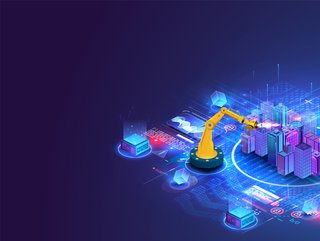Smart City Technology Paves the Way for Sustainable Energy

Smart cities play a key role in underpinning how society enacts energy sustainability, while either minimally impacting the existing world around it or enriching it. Despite the obvious societal enhancement brought about by smart cities, it has been noted that smart cities play a key role in fighting climate change and respecting energy sources available.
Smart cities by definition are more than just existing settlements enhanced by the use of digital infrastructure, but can encompass the likes of more energy efficient structures, integrated renewable energy sources, sustainable heating and cooling systems, smarter urban transport networks, upgraded water supply and better waste disposal facilities.
But how are smart cities paving the way to a more energy-efficient future?
Speaking at Sustainability LIVE last year, Stephen Lorimer, Clean Energy Cities, Centre for Net Zero – part of the Octopus Energy Group, discussed the complexities, challenges, and potential solutions related to smart cities, renewable energy, and decentralised energy systems.
When it comes to energy, he is an advocate for decentralisation, highlighting the challenges with centralised systems, empowering local entities, incentives for investment, community-based approaches, the role of regulation, and the importance of smart technologies in the context of energy and smart cities and how these must be considered to contribute to the success of smart cities.
“These are the kinds of things we need to start thinking about on top of storage and other things that need to be done to enable this to happen,” he explains.
Adding that principles inherent in smart city development align with the future vision of a sustainable and efficient energy landscape, Lorimer showcased how smart cities are positioned as crucial components in shaping the future of energy systems.
Smart cities making strides across Europe
Across the EU — and with the European Commission estimating that around 75% of Europe’s population lives in cities — there is a promotion of more sustainable, healthier and competitive urban areas as they remain important contributors to the EU’s energy consumption and greenhouse gas emissions with subsequent large-scale impact on climate change.
There are several initiatives in place to tackle the EU’s climate challenges, including the Smart Cities Marketplace, which aims to serve as a hub for pivotal practical knowledge, capacity building support and facilitation of finance.
Covering areas such as sustainable urban mobility, districts and built environment, citizen focus and integrated infrastructures and processes in energy, information and communication technologies and transport, the initiative has been able to match approximately 130 projects with financing opportunities of more than €615m (US$675m) in private investments, helping roll-out of sustainable smart city solutions, improving citizens’ quality of life and helping increase the competitiveness of EU cities and companies to contribute to reaching EU energy and climate targets.
Arthur D. Little is helping cities unleash the full potential of smart city initiatives. As explained by Partner Agron Lasku, cities are seeking to become smarter, using IoT and technology innovations to improve the quality of life and services and strengthen ESG sustainability.
“IoT platforms are used to monitor city infrastructures and manage everything from traffic flows to parking to water and air quality,” he explains. “Our research shows that cities who take an integrated approach to smart city initiatives can grow their GDP by up to 15%.”
And there are glowing examples of success across Europe. Take The Netherlands’ Amsterdam, for example, where by combining renewable energy sources and storage technologies into a single smart energy management system, the city dramatically lowers its CO₂ emissions and increases the economic value of renewable energy. Over in Paris, France — which is also one of the top deployers of IoT devices — digital applications have been deployed to help manage water, transport, energy and waste management systems in the city. Its more than 280,000 connected street lights save 70% on energy costs.
And in Barcelona, the city utilises its City OS open data infrastructure which allows the city council to distribute resources for transport, energy and water more efficiently. And London, United Kingdom — a former EU member which topped Z/Yen Group’s Smart Centres Index — is hailed for its determination to embrace data and new technologies when it comes to smart cities.
“Smart cities are not about technology for technology’s sake, but the application of technology to solve complex challenges that improve quality of life,” said Ashley Feldman, techUK’s Programme Manager for Transport and Smart Cities. “London is a global hub for the research and development of innovation – from 5G and future networks, to AI and clean-tech.”
Zaragoza, a city in northeastern Spain, is also noted as a metropolis pioneering the smart city vision. As Lorimer details: “Cities do really try to work to get renewable energy into their city and have community energy that’s affordable to others. In Zaragoza, they have a project where you pay a €6 (US$6.70) a month membership fee to be part of a solar community, and people are getting about up to 30% savings on their energy bills because they're getting almost free energy from that community. It’s a more simple way of leveraging data platforms.”
It’s safe to say from these real-life examples that smart cities are a key innovative concept for managing metropolitan areas to increase both the quality of life for residents and geographies’ sustainability benefits.
******
Make sure you check out the latest edition of Energy Digital and also sign up to our global conference series - Sustainability LIVE 2024
******
Energy Digital is a BizClik brand







